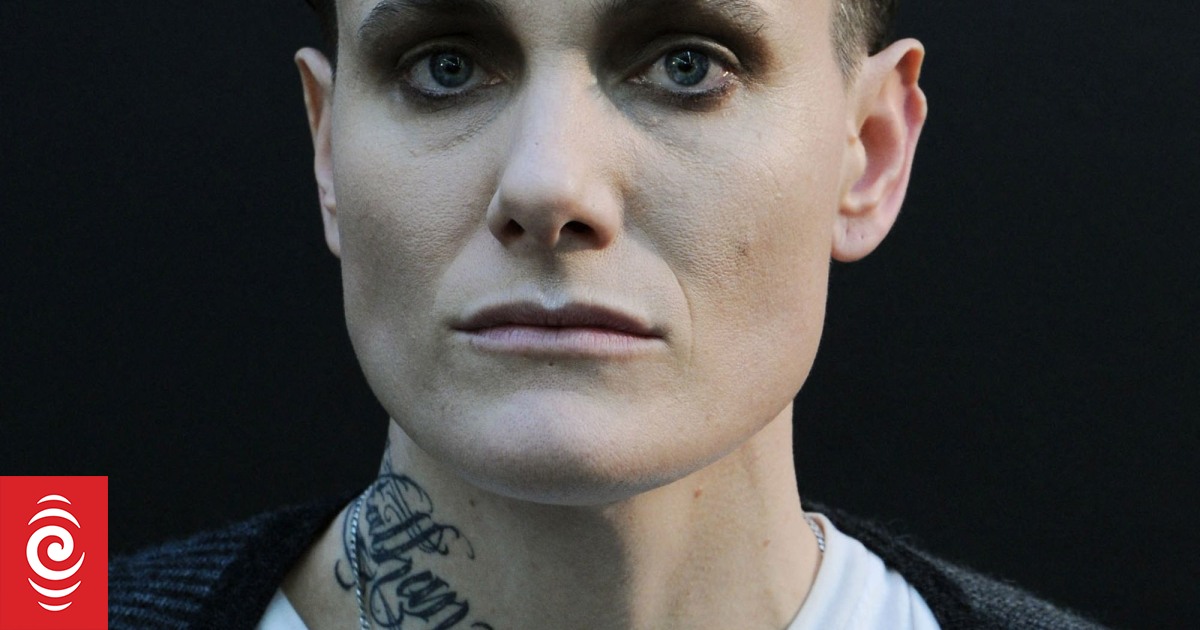Olympian is a label Casey Legler shied away from for 10 years as they carried the shame of failure.

Casey Legler at the Michael Bastian fall 2013 fashion show in New York City.
Photo: AFP / Getty Images / Ilya S. Savenok
Swimming saved Legler. It also opened the door to drugs, alcohol and abuse.
Legler believed their Olympic story was not the one people want to hear.
But one they felt compelled to tell as they shone a light on a side of high performance sport for young athletes normally kept in the shadows.
Today they would tell their story at the IWG World Conference on Women and Sport hosted in New Zealand and online.
By the time Legler was representing France at the 1996 Olympics they said they were a teenage addict with a bad attitude.
Legler first made the French national swim team as a 15-year-old and started picking up the paycheck all athletes in the junior, senior and Olympic teams got. With money to burn Legler could fuel their addiction.
Coaches knew but would turn a blind eye because their athlete was fast – very fast.
Legler broke the 50 metre freestyle world record in practice on the eve of the Olympic final. A day later the 19-year-old college student crashed out of the Games after finishing 29th in the race that mattered.
Failing on the world’s biggest stage was not a surprise.
Legler was one of the most talented swimmers at the Games but also one of the most unpredictable.
That complicated Olympic experience was one that Legler has only recently become comfortable to share.
“I felt such shame about how I had performed. I didn’t necessarily feel shame about having dealt drugs [to other athletes] or having had a bad attitude, those things are as a young person things that you might feel quite proud of but I don’t now as a full-fledged adult I just think I can’t believe I got out of that life and that lifestyle alive.
“But the thing that was so hard for me as a young person was how I had performed. I just felt so embarrassed and I definitely did not know how to talk about how much of an addict and alcoholic I was.”
Growing up interested in books, concerned about world politics, and wanting to pursue a university career in architecture Legler could not understand why people were so interested in them being a good swimmer.
Legler’s father was one of the original Phoenix Suns players in the NBA before he moved to France to play professional basketball and Legler – one of five children all close in age – was born.
His height was passed down to Legler who was 185 centimetres tall as a 12-year-old and swim coaches could see the potential.
In their early teens they could find the words to say they wanted to quit a sport they didn’t enjoy and didn’t feel equipped to be making some of the life decisions the adults around them were forcing them to make.
Now 45 years old living in America, Legler is a model, author and restaurateur.
They were one of the first trans and non-binary models of the Zeitgeist and are an outspoken critic of the patriarchy and an international LGBTI advocate.
And parent to a 7 month-old who is keeping them in America rather than Auckland for the 9th IWG Conference.
“I came up as a young girl in a very misogynist and sexist and very violent environment as an athlete and so I do think there are things that we can do to take care of everyone who’s not a cis white guy.”
Ledger questioned if elite athleticism and athlete wellbeing could co-exist.
“If we really interested in the wellbeing of elite athletes then I think there are a lot of things we could put in place that help to support that athlete until they become old enough to be responsible for their own career. We do this in every other place where children are involved except for sport.”
For all the latest Sports News Click Here
For the latest news and updates, follow us on Google News.

